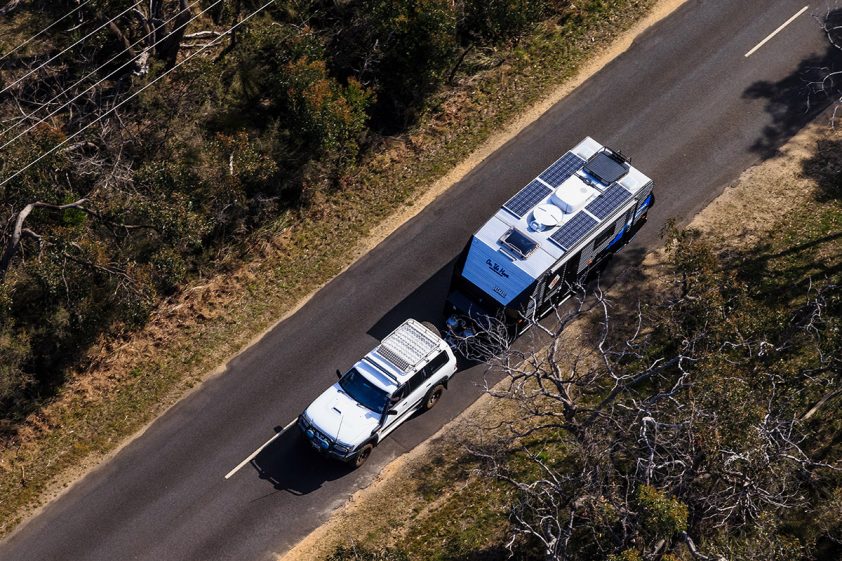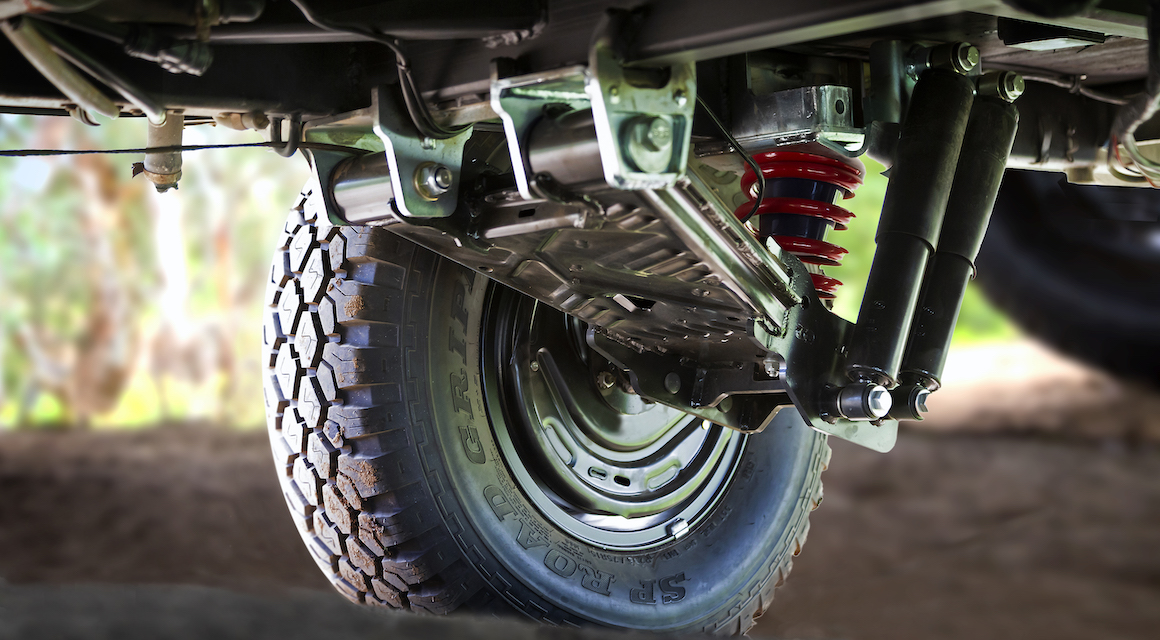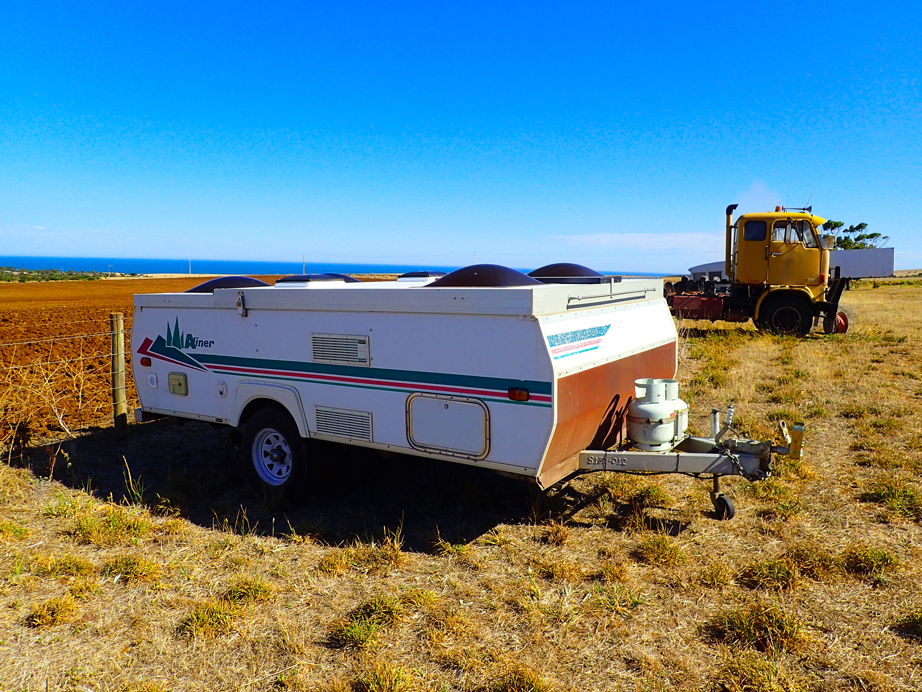1. TYPES OF PANELS
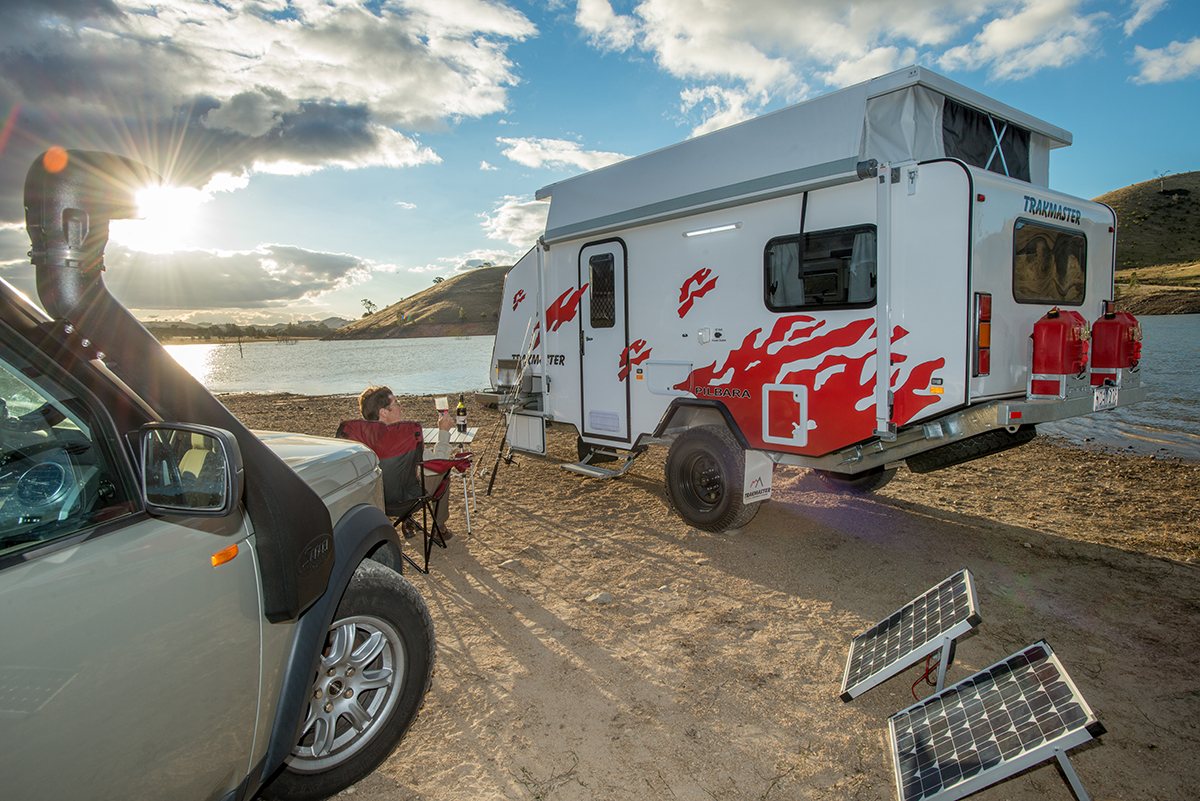
Q: ARE FLEXIBLE OR SOLID SOLAR PANELS BETTER?
A: Tempered glass solar panels (solid) generally have a much longer lifespan, they can’t be easily scratched and they don’t deform under heat. However, they are heavier than flexible panels, which won’t suit everyone.
In comparison, flexible panels have a shorter lifespan, the surface can get scratched more easily or gouged by trees if they’re on the roof, and constant exposure to heat means the plastic ages faster.
Q: ARE FIXED OR PERMANENT PANELS BETTER?
A: Fixed solar panels are a no-fuss option with next to no setup required, once installed. They can also help insulate your caravan or camper from the sun’s heat. However, the downside is that they can be too heavy for some campers or pop-tops, and they dictate where you have to park your caravan or camper to be effective.
The benefit of portable solar panels is that you can park in the shade and set the panels up a few metres away in full sunlight for maximum efficiency. With that system though, there is always a risk of theft.
Overall, portable panels are usually more efficient as they’re able to be moved into the perfect position, but fixed panels usually make up for this by pulling more solar power into the system.
Q: WHAT IS THE BEST SOLAR SETUP?
A: An RV system has to have at least 500W otherwise it won’t be enough to run the fridge. But, ideally, five 200W 12V solar panels, or as many as possible, would be recommended.
A 1kW system would pump out about 50-55A in the best case scenario. The average sunlight in a day ranges from 4-6 hours, depending on the season, so if the panels are fully exposed to the sun all day, you could get 200-300Ah of energy. You need to work out your total energy consumption and design the solar system accordingly.
2. SOLAR REGULATORS
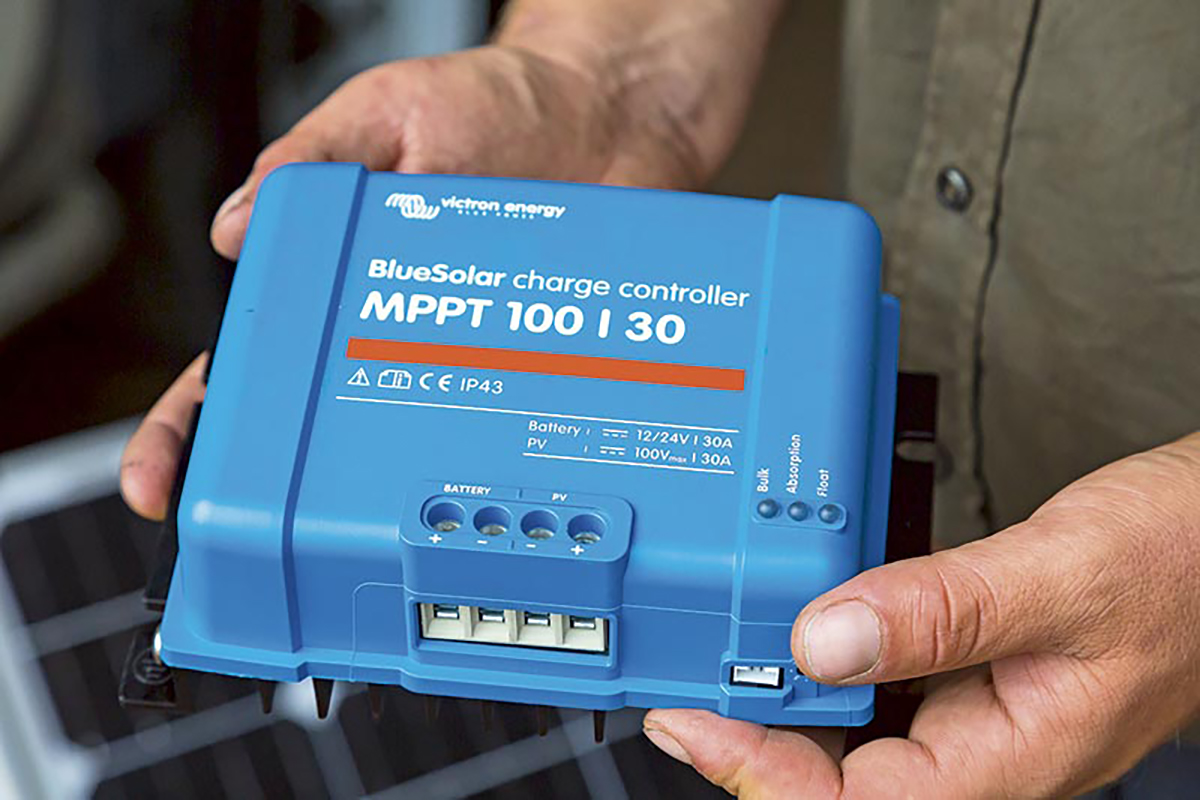
Q: WHY DO I NEED A SOLAR REGULATOR?
A: Most 12V solar panels on the market have an output voltage of 18-22V, while the charging voltage of a 12V battery ranges from 13-14.4V in different charging stages. You need a regulator to drop down the voltage, detect the battery’s state of charge and apply adequate voltage to the battery in different charging stages.
Q: WHAT SOLAR REGULATOR SHOULD I BUY?
A: If you’re deciding between a Maximum Power Point Tracking (MPPT) charger and a Pulse Width Modulation (PWM) charger, the MPPT is considered best for most caravan and camper trailer applications.
An MPPT charger will provide an average of 20 per cent more amperage than a PWM, however, they do cost at least $100 more.”
MPPT regulators are not only more efficient but they’re usually higher quality in general making them more reliable for touring applications. Plus, MPPT can convert voltage between the solar system and battery bank, as long as the voltage of the solar system is higher than the battery bank.
This means you can daisy chain your panels (connect them in a series) saving you a lot of work on wiring and allows the system to run on the lower amp and higher voltage, which is much more efficient.
3. MAINTENANCE
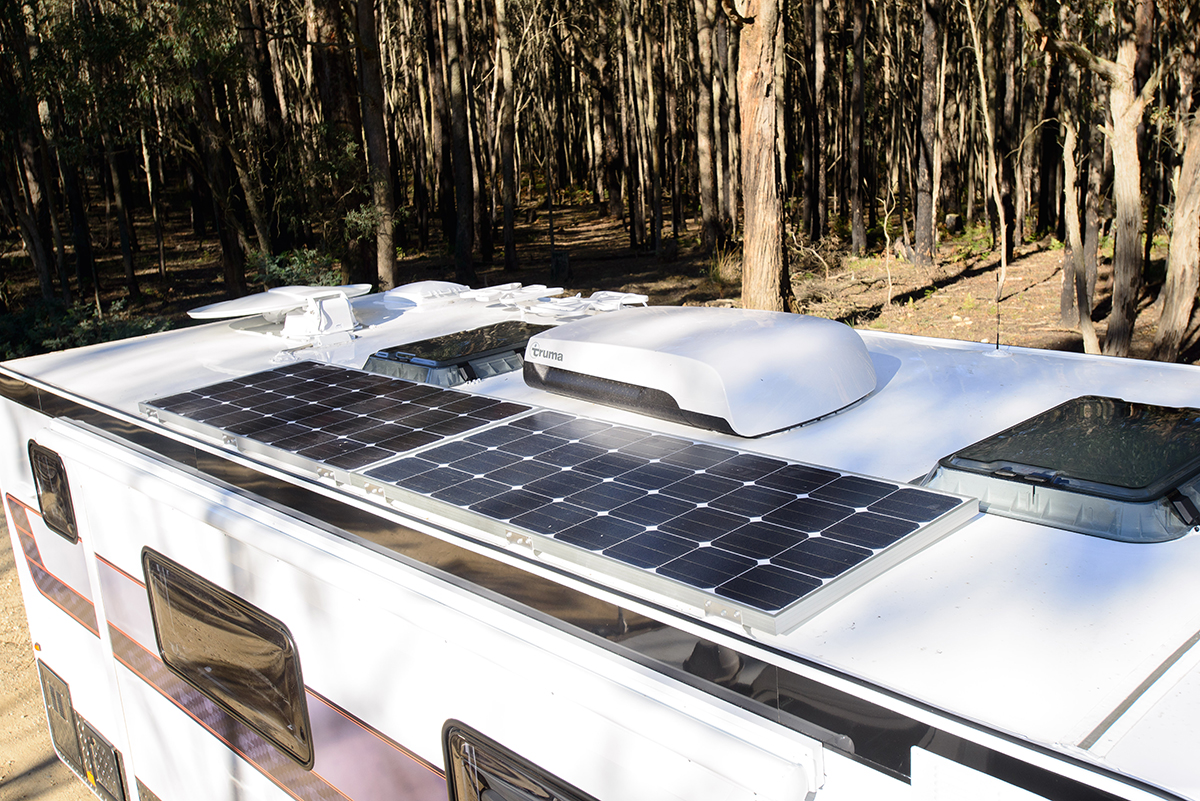
Q: HOW CAN I TELL IF MY SYSTEM’S WORKING PROPERLY?
A: The best thing to do is to get a power meter and measure the accumulated charging amp hours. Alternatively, you can just use a multimeter to measure the amps going into your battery when the panel is fully exposed to the sun
Q: SHOULD I MONITOR MY SYSTEM REGULARLY?
A: While a solar system runs autonomously and is maintenance free, you need to keep an eye on the battery voltage. Most deep-cycle batteries are not designed for deep discharge. Any deep discharge will shorten the life expectancy of the battery. It’s not recommended to draw energy from the battery when the voltage is lower than 12V.
So it is essential to have the battery voltage displayed at all times and turn off your non-essential appliances when the battery drops under 12V. This is something you need to do even if you don’t have a solar system.
Q: HOW OFTEN SHOULD I CLEAN MY SOLAR PANELS?
A: Most permanent solar panels sit nearly flat on the roof of a caravan, camper or 4WD, which means dirt and dust that has been collecting on the surface of the solar panel has nowhere to go. Cleaning the solar panel regularly will ensure the solar cells are achieving maximum exposure to the sun, thus maximising their overall efficiency.
Q: HOW DO I CLEAN MY SOLAR PANELS?
A: If you use a polishing motion to clean your solar panel, there’s a good chance you’re actually creating a static charge, which attracts dust particles. The best way to keep your solar panel clean is to wipe it over with a water/detergent mix, before rinsing it with clean water (with a small amount of detergent) and letting it dry on its own. The detergent actually acts as an anti-static agent.
MEET THE AUTHOR
Peter Quilty
With more than 30 years’ journalistic experience, Peter’s brief predominantly centres on editorial reviews for Caravan World and CamperTrailer Australia magazines.
A relative late starter to the trials and tribulations of the RV industry, Peter has been making up for lost time caravanning and camping with his family around Victoria. Initially, Gippsland was the primary stamping ground free camping in idyllic bush settings such as Dargo and Licola, beside the Wonnangatta and Macalister rivers respectively. Other favourite haunts also became ensconced on the family camping itinerary – Jamieson in Victoria’s High Country, Whitfield in the King Valley, Princetown on the Great Ocean Road, and Bright in the Ovens Valley.

